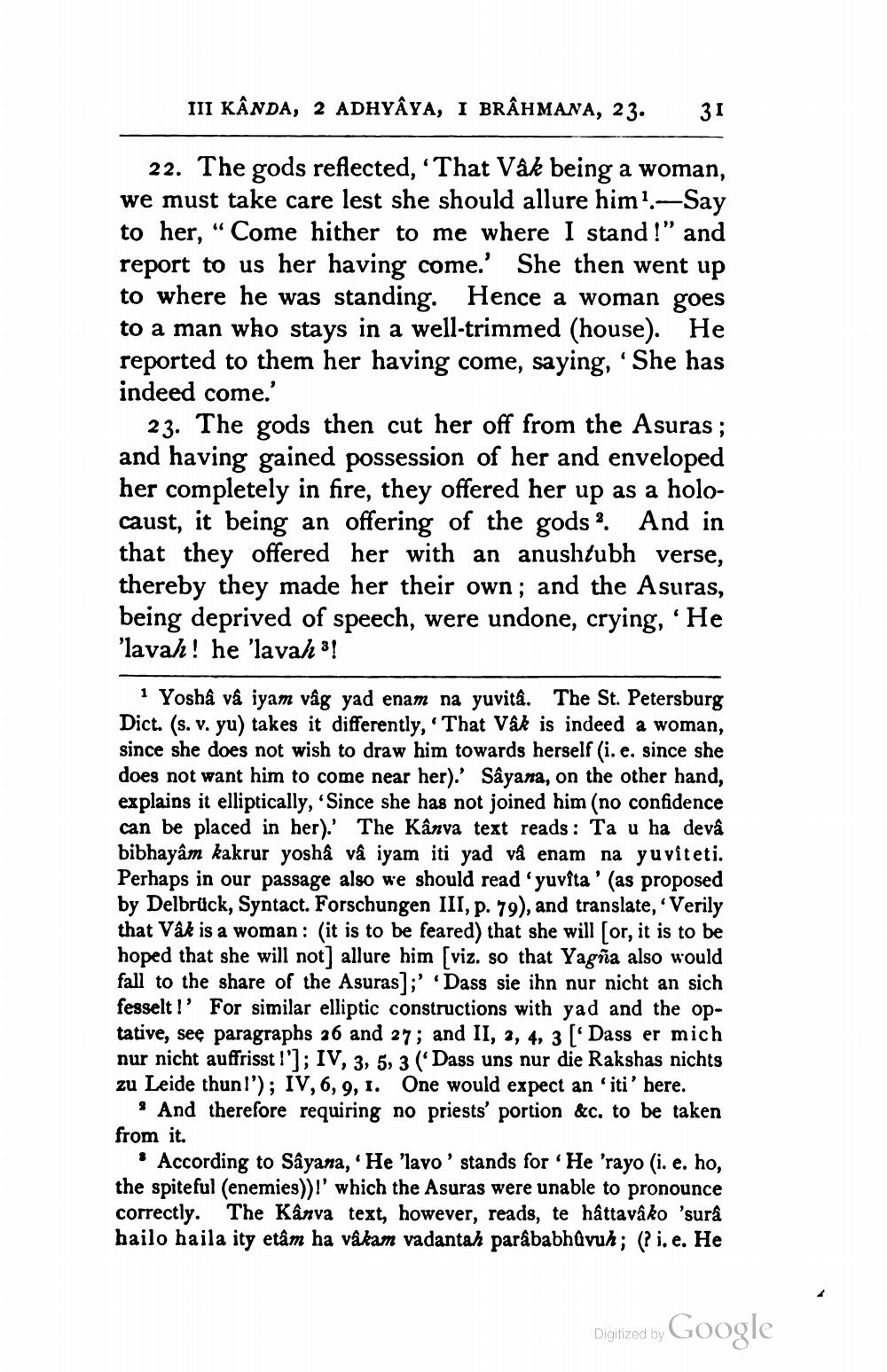________________
III KÂNDA, 2 ADHYÂYA, I BRÂHMANA, 23.
31
22. The gods reflected, 'That Vâk being a woman, we must take care lest she should allure him?.-Say to her, “Come hither to me where I stand !" and report to us her having come.' She then went up to where he was standing. Hence a woman goes to a man who stays in a well-trimmed (house). He reported to them her having come, saying, 'She has indeed come.'
23. The gods then cut her off from the Asuras; and having gained possession of her and enveloped her completely in fire, they offered her up as a holocaust, it being an offering of the gods 3. And in that they offered her with an anushtubh verse, thereby they made her their own; and the Asuras, being deprived of speech, were undone, crying, 'He 'lavah! he 'lavah!
1 Yosha và iyam vẫg yad enam na yuvit. The St. Petersburg Dict. (s. v. yu) takes it differently, 'That Vák is indeed a woman, since she does not wish to draw him towards herself (i. e, since she does not want him to come near her).' Sâyana, on the other hand, explains it elliptically, 'Since she has not joined him (no confidence can be placed in her).' The Kânva text reads : Ta u ha deva bibhayam kakrur yoshâ vâ iyam iti yad va enam na yuviteti. Perhaps in our passage also we should read 'yuvita' (as proposed by Delbrück, Syntact. Forschungen III, p. 79), and translate, 'Verily that Vâk is a woman: (it is to be feared) that she will [or, it is to be hoped that she will not allure him (viz. so that Yagña also would fall to the share of the Asuras);' Dass sie ihn nur nicht an sich fesselt !' For similar elliptic constructions with yad and the optative, see paragraphs 26 and 27; and II, 2, 4, 3 [Dass er mich nur nicht auffrisst l']; IV, 3, 5, 3 (Dass uns nur die Rakshas nichts zu Leide thun!'); IV, 6, 9, 1. One would expect an iti' here.
* And therefore requiring no priests' portion &c. to be taken from it.
According to Sâyana, 'He 'lavo' stands for · He 'rayo (i. e. ho, the spiteful (enemies))!' which the Asuras were unable to pronounce correctly. The Kanva text, however, reads, te hâttavako 'sura hailo haila ity etâm ha vâkam vadantah parábabhůvuh; (? i.e. He
Digitized by Google




